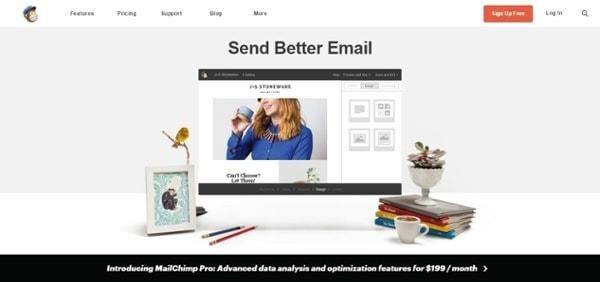Business
4 questions to ask to create a powerful corporate brand for your small business
Corporate branding is important for any business to attract customers and build their trust. Here are some things to know to create a powerful brand.

Whether it’s a large corporation or a small business, branding is one of the most important aspects of marketing.
Your brand differentiates you from your competitors, and it tells your customers what they can expect from you.
According to a Nielsen survey, 59 percent of consumers prefer to buy new products from brands familiar to them. Corporate branding is one of the best ways to build and keep your customers’ trust.
Not only that, but proper business branding can also lead to an increase in sales, word-of-mouth referrals and advocacy for what you’re selling.
Here are four questions to ask and answer as you’re creating a brand:
1. Who are you?
You can’t be everything to everyone. As you grow your corporate brand, you need to whittle down who your target customers are.
If your customers know you for your low-cost products, your brand message and brand strategy will reflect that. If your customers perceive your company as innovative and cutting-edge, be that to them.
Let’s use an example. A relationship therapist who offers marriage counseling will focus on brand development strategies to appeal to a target audience of married couples, not troubled teens or bereaved pet owners.
2. What’s your mission statement?
One of the first elements of creating a brand is defining your mission statement. Your mission statement is related to what your company is most passionate about.
Some questions you can ask in this business branding exercise include:
- Why are you in business?
- What do you want for your customers?
- How do you differ from your competitors?
- Where do you see your company going in the future?
- What underlying philosophies or values do you have around your business?
Take a look at Nike’s mission statement. While you may be most familiar with their “Just Do It” tagline, here’s their mission statement.
© Susan Friesen
Your mission statement will influence everything from your tagline and logo to your tone of voice.
3. What’s your brand message?
When you’re creating a brand, it’s important to start with your brand message. Your brand message can be boiled down to your value proposition and the tone of your content.
Brand messaging is what inspires and persuades buyers to buy your product or service.
MailChimp has a simple, three-word brand message: Send better email. It’s direct and tells you exactly what you can expect if they use their service.

© Susan Friesen
Let’s use the relationship therapist as an example again. He or she might create a brand message that’s bold and direct: Save your marriage. Or, he or she might focus on compassion and listening, and create a brand message around that: I’m here for both of you.
4. What’s your brand strategy?
Your brand strategy refers to how, what where, when and to whom you deliver on your brand messages.
First, you need to determine your overall goals when it comes to your corporate branding. Are you trying to reach a new audience or steal market share from a competitor?
Included in your long-term brand strategy may be:
- What you communicate, such as your logo, tagline and language in website copy
- Where you advertise. Do you use Google AdWords, social media marketing, brochures, bus shelter ads…
- How you’ll reach customers, whether it’s weekly emails advertising sales or seasonal contests to keep them engaged with your brand
Corporate branding is a process.
It’s not easy, and it doesn’t happen overnight, or even in a few months. However, the ongoing effort can result in better relationships with your customers, increased leads and sales, and more trust in your product or service.
It can be very challenging to focus on brand development strategies on your own, and the risk of not doing it correctly can be devastating to your business.
(Featured image by DepositPhotos)
—
DISCLAIMER: This article expresses my own ideas and opinions. Any information I have shared are from sources that I believe to be reliable and accurate. I did not receive any financial compensation for writing this post, nor do I own any shares in any company I’ve mentioned. I encourage any reader to do their own diligent research first before making any investment decisions.

-

 Crypto9 hours ago
Crypto9 hours agoTariff Turmoil Sends Bitcoin and Ethereum Lower as Crypto Markets Face Mounting Pressure
-

 Impact Investing2 weeks ago
Impact Investing2 weeks agoEU Backs 90% Emissions Cut by 2040 and Delays ETS2 Rollout
-

 Markets1 week ago
Markets1 week agoMarkets, Jobs, and Precious Metals Show Volatility Amid Uncertainty
-

 Cannabis4 days ago
Cannabis4 days agoAI Can Mimic Psychedelic Experiences but Cannot Truly Feel Them, Study Warns


![Kevin Harrington - 1.5 Minutes to a Lifetime of Wealth [OTC: RSTN]](https://born2invest.com/wp-content/uploads/2023/12/kevin-harrington-400x240.jpg)
![Kevin Harrington - 1.5 Minutes to a Lifetime of Wealth [OTC: RSTN]](https://born2invest.com/wp-content/uploads/2023/12/kevin-harrington-80x80.jpg)



















You must be logged in to post a comment Login